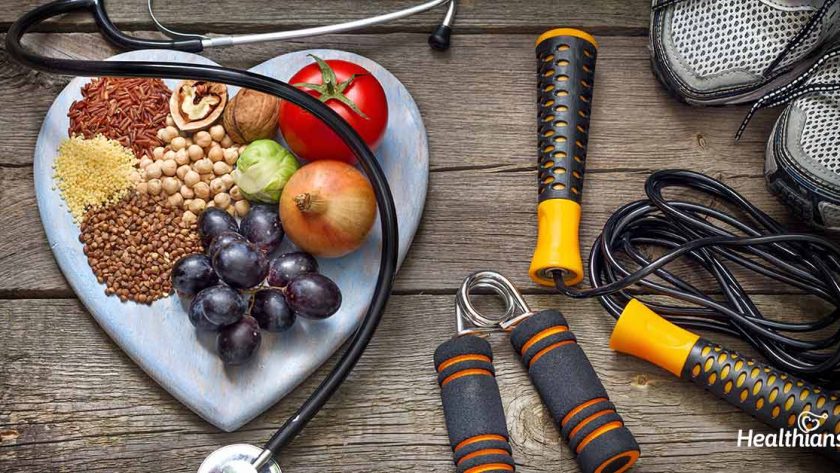[ad_1]
Contributed by: Priyaish Srivastava
Introduction:
Your heart is one the most vital organs in the body and pumps around 1.5 gallons of blood every minute, approximately 2000 gallons every day. Interestingly, the heart pumps around 1,00,000 times each day and manages the functioning of around 60,000 miles of blood vessels spread throughout your body, enough to travel around the world twice.
Your heart is roughly the size of two hands clasped together, and it works hard to keep you alive by pumping oxygenated blood to every cell in your body by ensuring a smooth flow of blood to the lungs to pick up oxygen.
In the current times, heart diseases have become very common and they not only affect older people but also hold an equal threat over the young generation. Here are some of the top causes of heart complications that you should watch out for.
Causes of heart complications:
To protect your heart, you need to avoid the triggers that can bring about heart complications and potentially damage your heart. Some of the triggers are:
-
- Smoking
- Stress
- Alcohol consumption
- Poor oral hygiene
- Ignoring your snoring
- Overeating
- Lack of physical activity
- Not eating green vegetables
- Eating unhealthy junk foods
Symptoms of heart complications:
If your heart is at risk, you can experience some of the following symptoms:
-
- Coughing continuously
- Extreme tiredness and weakness
- Frequent episodes of heart palpitations and accelerated heartbeat
- Discomfort in the jaw, throat, chest, arm, or below the breastbone
- Heartburn
- Loss of appetite
- Dizziness and fainting
- Swelling in the stomach, heels, and feet
- Unintentional weight loss or weight gain, and inability to workout
- Anxiety and sweating
We all know that prevention is better than cure. Here are the top six lifestyle changes that can help you prevent heart illnesses promote heart health.
6 lifestyle changes to keep your heart healthy and your heartbeat steady:
Avoid the heat:
Warm temperatures are bad for your heart since they accelerate heartbeats. Heart palpitations or chest discomfort might occur as a result of an accelerated heart rate, and you may also experience dizziness or fainting.
When your body is exposed to heat, your heart begins to beat faster to pump blood and create perspiration to regulate your body’s temperature (generally during summertime).
To avoid heart complications due to heat, drink lots of water, try to remain in a cool area as much as possible, and carry an umbrella to minimize direct sun exposure.
Regular exercises:
One of the most effective methods to enhance your overall health is to exercise daily. Although it may appear contradictory because exercise increases heart rate, but what happens is that exercise strengthens the heart and increases its ability to pump blood.
This enables the heart to maintain a normal heart rate when the body is at rest mode. Regular exercising also benefits the heart by reducing stress hormones and managing cholesterol levels and blood pressure.
Breathing exercises, brisk walking, running, swimming, cycling, playing tennis, and jumping rope are some of the best exercises to promote heart health.
Take less stress:
Stress and heart rate are directly proportional. This implies that the more stress you take, the higher your heart rate will be. To reduce your stress levels, take some me-time by disconnecting yourself from electronic devices and daily activities (like going to the office, college, or school). Practicing meditation can also help in de-stressing your mind.
Quit smoking:
The habit of smoking is one of the leading causes of heart illnesses that you should quit, and if you don’t smoke, you should never start. Smoking increases the risk of coronary heart disease, stroke, and lung cancer. Some studies prove that nicotine tightens your veins and arteries, and makes it difficult for the heart to pump blood by increasing resting heart rate.
The good thing is that within 24 hours after you quit smoking, your resting heart rate decreases and your lungs start to detoxify.
Practice deep breathing exercises:
Deep breathing exercises are a quick and easy way to manage your heart rate. Practicing it regularly for five to ten minutes improves the levels of oxygen in your body and helps manage your heart rate.
Dietary tips:
Following are some of the food that’s good for your heart:
- Beans: Beans are enriched with fibres and minerals and have almost no saturated fat which helps manage cholesterol levels and reduce the risk of heart complications.
- Berries: Blueberries and strawberries are enriched with a compound called anthocyanin that may help lower blood pressure and protect blood vessels.
- Dark leafy greens: Dark leafy green vegetables like spinach, broccoli, and mustard are enriched with several nutrients, vitamins, and minerals like folate (vitamin B) that are helpful for heart disease prevention. They are also enriched with antioxidants that may help strengthen your bones and prevent cancer.
Final thoughts:
Heart-related diseases are increasing rapidly, which necessitates maintaining good heart health for the proper functioning of your overall body. Therefore, if you are vulnerable to any of the above-mentioned causes of heart ailments, getting an early diagnosis and implementing healthy lifestyle changes can help you manage the condition effectively.
Book The Preventive Heart Checkup Today!
[ad_2]
Source link




